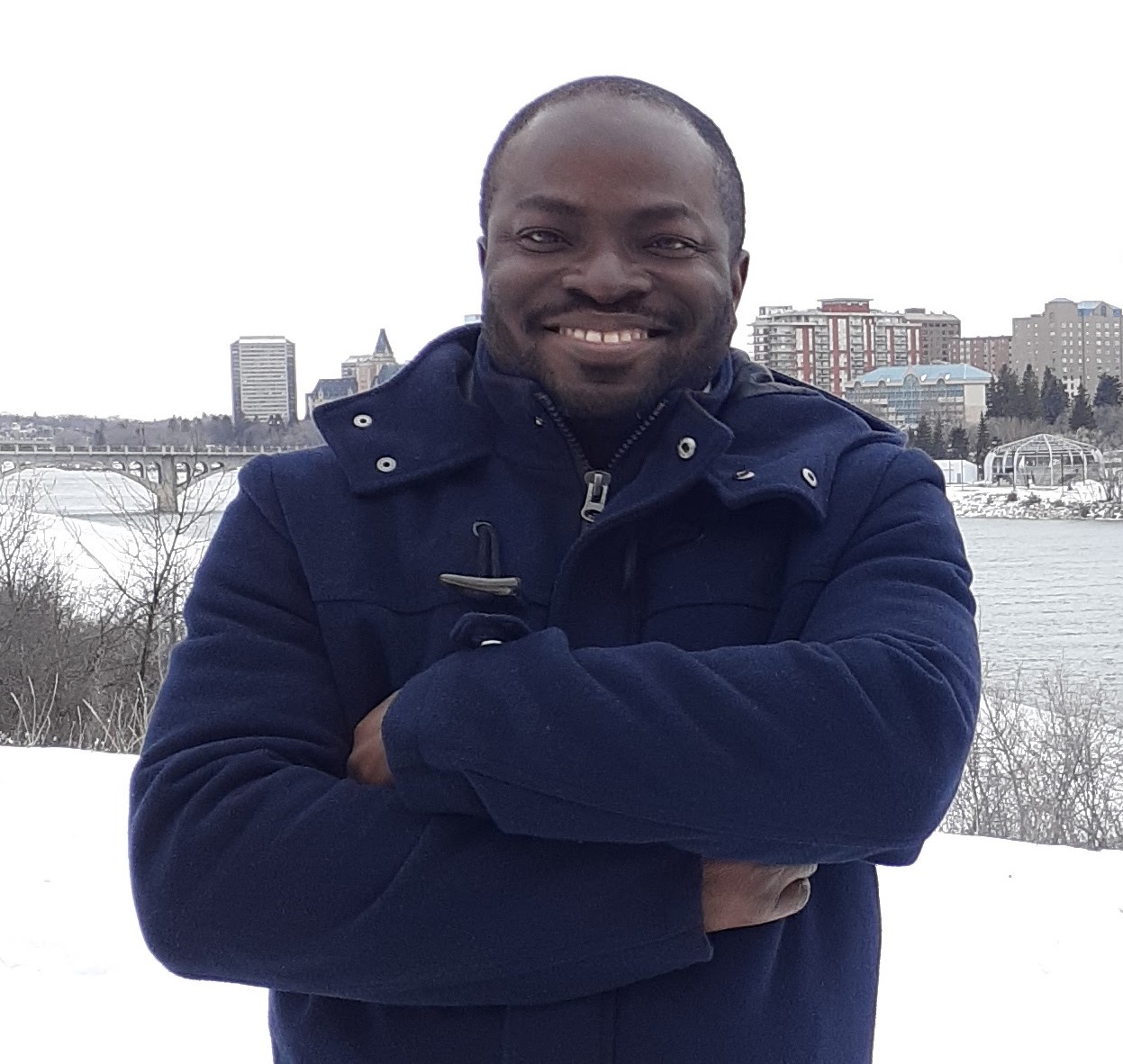
Gabriel Antwi-Boasiako BSc, MSc, MPhil
PhD Candidate School of Environment and SustainabilityResearch Area(s)
- Wildlife disease (zoonoses)
- One Health
- Indigenous and Traditional Ecological Knowledge
- Natural Resources’ Policy and decision-making
- Natural Resources Conservation
- Human-Wildlife Interactions (conflicts)
- Climate change mitigation & adaptation
Qualifications
Doctor of Philosophy, Environment & Sustainability), University of Saskatchewan (2020-Present)
Master of Philosophy, Conservation Leadership, University of Cambridge (2020)
Master of Science, Rural Development, Swedish University of Agricultural Sciences (2012)
Bachelor of Science, Natural Resources Management, Kwame Nkrumah University of Science & Technology (2009)
Research Description
The aim is to characterize the policy and decision-making processes in the social, political, and health context of human-wildlife diseases transmission, particularly zoonosis. Specifically, we focus on how decisions are made, who are involved and excluded in the process, representatives’ roles (direct and indirect), power and influence, and selection criteria. Getting the decision-making process “right” is pivotal and must take a holistic approach. Usually, the missing piece in the puzzle is the absence (deliberate, accidental, unknowingly) or under-representation of key stakeholders, who are mostly affected by the outcome of the final decisions. Apart from “missing” from decision-making tables, there are also instances whereby key stakeholders are partially “consulted” instead of active and full inclusion in the entire decision-making process. Additionally, we are interested in institutional coordination and power relations among various decision-making institutions. We are working with stakeholders from diverse background such as First Nation Governments, Indigenous communities, farmers, co-management organizations, academic researchers, provincial and territorial governments in Saskatchewan and Yukon, Canada. Understanding the process of collective decision-making by all stakeholders will contribute to robust decisions and policies which could be accepted and used by all stakeholders.
Publications and Awards
Publications:
Clark, D., Antwi-Boasiako, G., Brook, R. K, Epp, T., Jenkins, E., Lambert, S., & Soos, C. (2022). Understanding and strengthening wildlife and zoonotic disease policy processes: A research imperative. Zoonoses and Public Health, 00, 1–9. https://doi.org/10.1111/zph.12981
Awards:
Saskatchewan Fish & Wildlife Student Research Fund (2023 & 2024)
Graduate Teaching Fellowship, University of Saskatchewan (2022)
PhD Standard Scholarship, University of Saskatchewan (2020-2023)
Pat J. Miller Scholar, Wildlife Conservation Network (2020)
Miriam Rothschild Conservation Leadership Scholarship (2019)
Crowder Messersmith Conservation Fund (2019)
Alexander von Humboldt Fellowship (2016)
Rufford Grant for Nature Conservation (2015)

